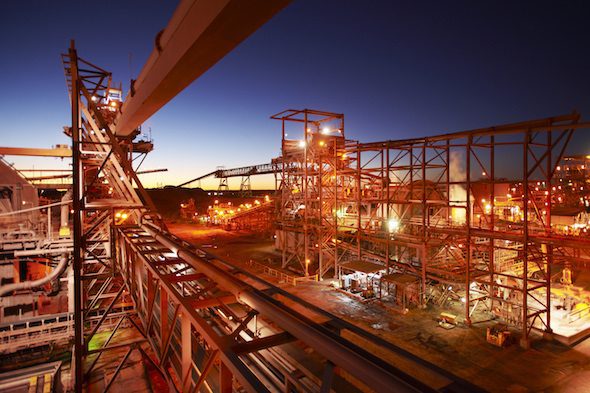BHP is to take the lead on some of Australia’s most significant clean energy projects after securing agreement to buy fellow Australian miner Oz Minerals, and boosting its reach over copper and nickel resources that are essential to meet growing demand from global EV battery makers.
BHP on Friday said it has sweetened its original offer for OzMinerals by 13 per cent to $28.25 a share, representing an enterprise value of $9.6 billion, underscoring its intention to act as a leading supplier of raw materials underpinning the world’s clean energy transition.
Copper and nickel are in strong demand amid the shift to electric vehicles and more renewable energy, igniting a race by mining companies to shore up future sources. BHP since 2019 has identified both metals as its preferred commodities for growth as global decarbonisation accelerates.
While a number of metals, including lithium, cobalt, manganese are fundamental elements in most EV batteries, copper is prized for its superior ability to conduct electricity.
S&P Global Report has warned of a “chronic gap” between worldwide copper supply and demand projected to begin in the middle of this decade that will bring serious consequences across the global economy and will affect the timing of net-Zero emissions by 2050.
“Unless massive new supply comes online in a timely way, the goal of net-zero emissions by 2050 will be short-circuited and remain out of reach,” according to S&P.
Automakers in recent years have also increased the percentage of nickel in cathodes to boost the batteries’ energy density and increase vehicle range.
BHP’s own internal forecast estimates global demand for nickel will grow as much as fourfold over the next 30 years as electric vehicle ownership eclipses conventional vehicles, predicting nine in 10 cars sold by 2040 will be EVs.
“The acquisition would add copper and nickel resources that are essential to support the global megatrends of decarbonisation and electrification,” BHP said in announcing its increased offer.
“This is consistent with BHP’s strategy to deliver long term value and returns through owning a portfolio of world class assets with exposure to highly attractive commodities that benefit from global megatrends.,” the company said.
Based on recent industry rankings, BHP currently stands as the world’s second largest copper producer and fifth largest nickel producer.
A takeover of Oz Minerals would also deliver BHP greater green credentials, as most of its revenue remains driven by fossil fuels.
Oz Minerals has long proposed developing its West Musgrave deposit in remote Western Australia and related processing facilities able to churn out 26,000 tonnes of nickel and 32,000 tonnes of copper a year, by leveraging up to 100 per cent renewable energy generation.
It has also sought to portray itself as a leader in mining “modern” metals that will underpin the shift to EVs and renewable energy.
Oz Minerals earlier this year released an updated decarbonisation strategy to halve its “Scope 1 and 2” operational emissions by 2027 and achieve net zero by 2030, more ambitious targets than those adopted by most of the sector.
To help meet those targets, it has been trialling numerous battery-powered devices with the aim of eliminating the need for diesel fuel in transport and mining machinery and has sought to portray itself global leader in mining “modern” metals that will underpin the global shift to electric vehicles and renewable energy.
BHP has also vowed to source the equivalent of all its power needs from renewable energy, and earlier this month unveiled a unique “baseload” supply from Neoen for its huge Olympic Dam mine, comprising power from the Goyder South wind farm under construction, and a new 800MWh battery at Blyth.










